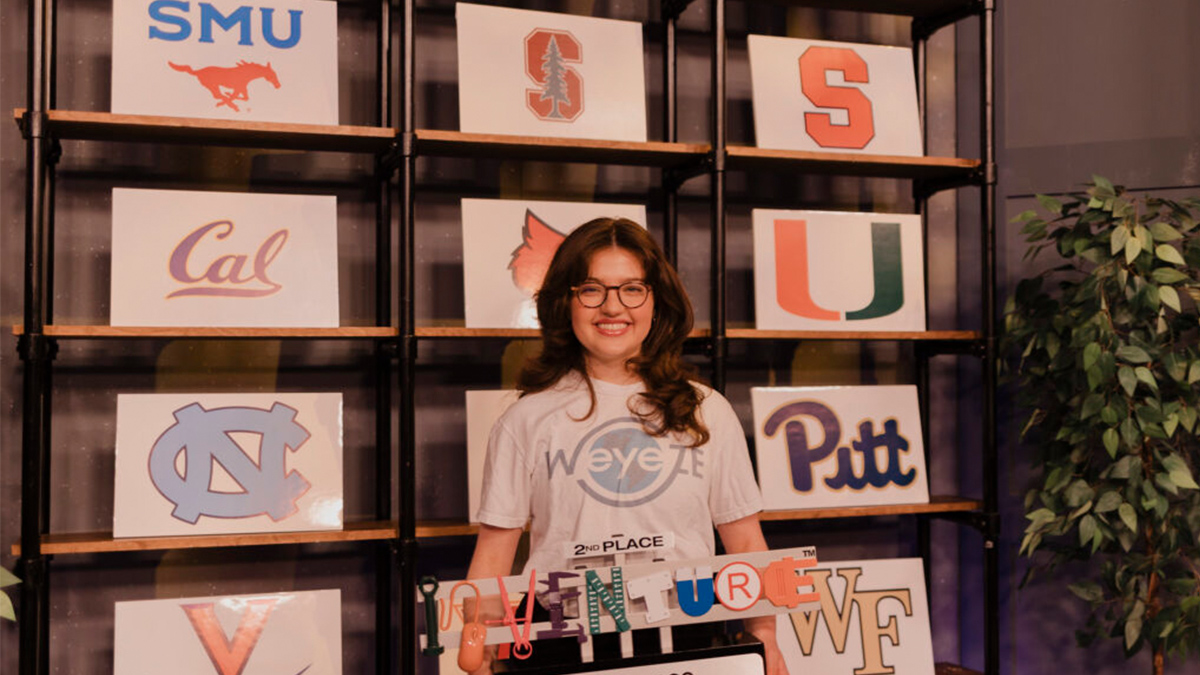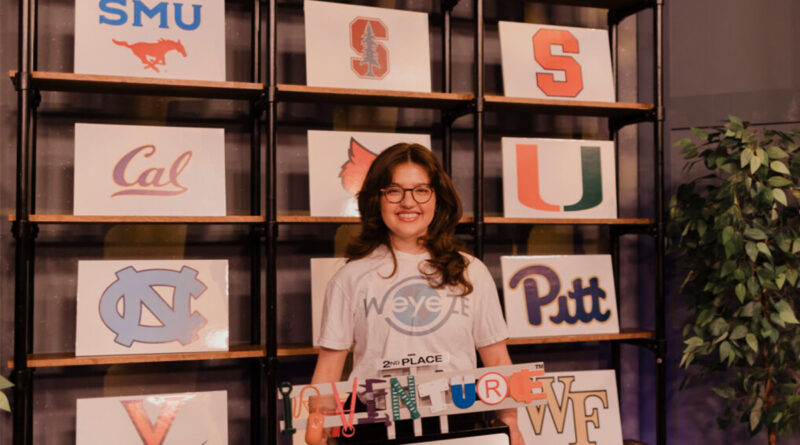A business professional expects success | UNC-Chapel Hill
Sasha Surkin has been a serial entrepreneur for almost ten years. His newest and biggest project is WeyeZE (pronounced “wisdom”), a startup he created after inventing a lens-correcting eyeglass device. Objective: to improve the availability and affordability of quality vision care.
The agency is in beta testing, and he is preparing for another round of seed funding as he continues his studies at the UNC Kenan-Flagler School of Business Program.
WeyeZE has made incredible waves since its launch in March 2021 when Surkin was 18. He has participated in several prominent competitions, placing second for the 2024 National ACC InVenture Award, which was broadcast live on PBS, and won $10,000.
WeyeZE received a $10,000 grant from the NC IDEA Foundation, and when Surkin was in high school, he received $50,000 as the winner of the 2020 Archangel Dreamer Competition, supporting what became WeyeZE. In April 2024, she won first place and $12,000 in the first Joan and Chester Luby Pitch competition for startup incubator Innovate Carolina.
He says: “I have hope because I am driven by people who needed it yesterday. “This year is going to be all about getting close to this.”
Surkin was inspired at the age of 15 to create WeyeZE after reading a story in The New York Times about how lack of access to vision care caused a $250 billion shortfall in global productivity . The story was about a young Indian student who cannot become a pilot because of his poor eyesight until an eye care clinic visits the town.
Around the same time, Surkin experienced his own vision problems. He went to an eye doctor and ordered glasses, which were paid for by his parent’s health insurance, Costco.
His idea was to simplify the process in the form of an eyeglass cream that one can use to make new corrective glasses in a few minutes or to adjust the types and powers of the lenses to adapt to unique, changing needs.

Surkin has entered WeyeZE in several competitions, placing second for the 2024 ACC InVenture National Award. (Submitted)
It’s not just about convenience. Other barriers to vision care include lack of insurance coverage, limited transportation options, and the cost of eye exams and glasses, according to a 2022 article in the American Academy of Ophthalmology. The World Health Organization estimates that more than 700 million people worldwide need glasses.
“WeyeZE was originally founded to provide glasses to those who do not have an eye doctor in their area,” says Surkin. “It has become something that can be delivered as an easy way to bring health care equity into the vision care space. It empowers the individual.”
Surkin brought WeyeZE with him to Carolina as a guaranteed admission to the business school. He sent professor Jim Kitchen ’87 an anonymous email at the beginning of his freshman year, introducing himself and WeyeZE. Over FaceTime, Kitchen was enthusiastic about the project, encouraging him to enter the ACC tournament in which he later participated.
He received input from his fellow students, valuable support from professors Ted Zoller and Melissa Geil, and staff member Jackie Fritsch, UBP’s director of admissions and recruitment.
“The thing I’ve always loved about UNC Kenan-Flagler is the creative spirit. There’s a buzz when you walk in,” says Surkin. “People make space. I quickly saw that my desire to do this would not only be supported but encouraged.”
By Luther Hodges Scholar, Wayland H. Cato Jr. Merit Scholar and Honors student at Carolina, but WeyeZE has always been a priority. He brought WeyeZE’s painting to the Global Immersion Elective to Alaska to show it to the Alaskan Native Tribal Health Consortium. They wanted to keep it.
Read more about Sasha Surkin.
#business #professional #expects #success #UNCChapel #Hill
